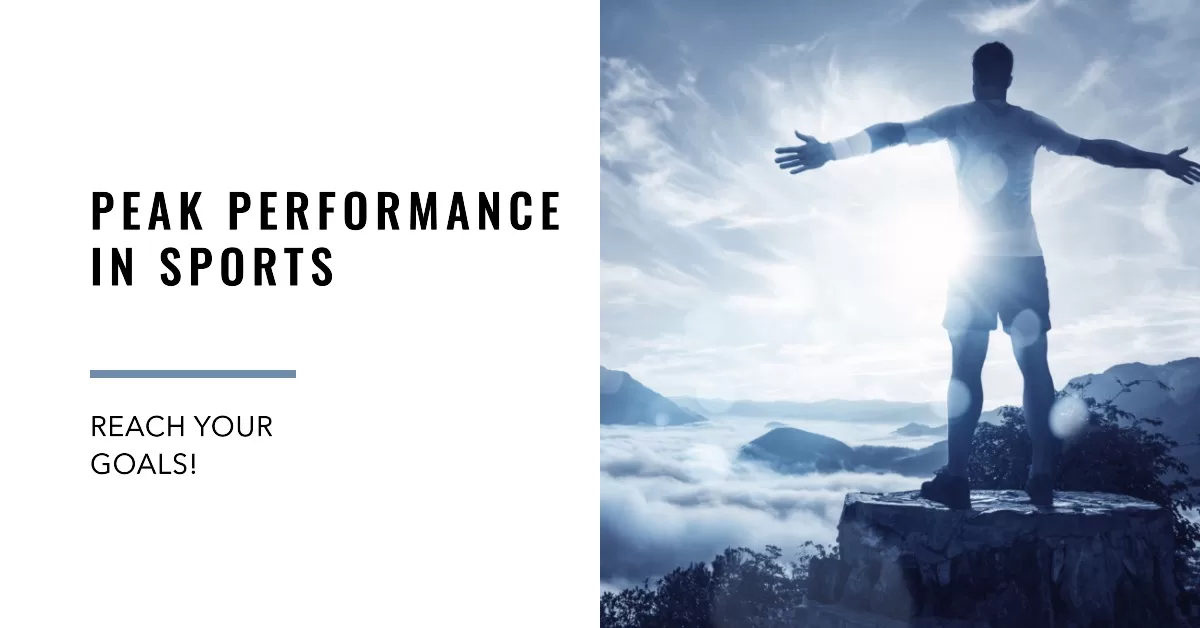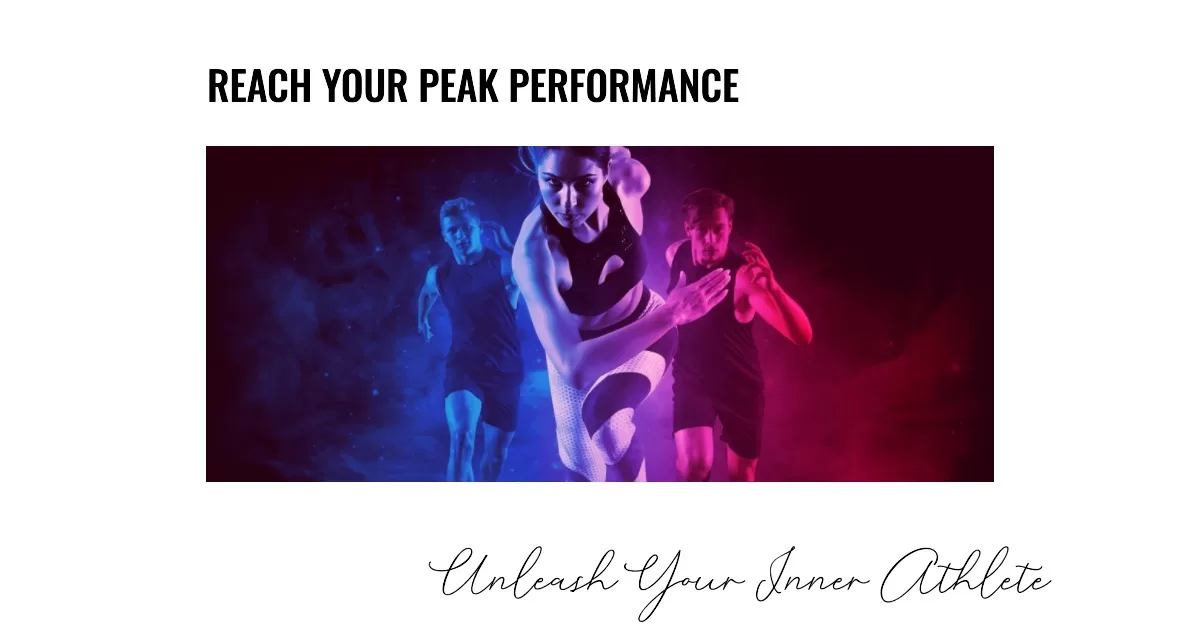High-performance athletes are constantly striving to improve their performance and achieve their goals. While natural talent, hard work, and dedication are important factors in athletic success, the guidance of a skilled coach can make all the difference. High-performance coaches specialize in helping athletes reach their full potential by providing personalized guidance and support, improving physical conditioning, refining technique, developing mental toughness and resilience, and offering ongoing feedback.
In this article, we will explore the role of high-performance coaches in athletic success. We will delve into how they help athletes achieve peak performance through personalized coaching techniques that address both the physical and mental aspects of training. We will also examine some success stories from athletes who have worked with high-performance coaches to reach new levels of achievement. Finally, we’ll offer tips on how to choose the right high-performance coach for your needs.
Table of Contents
- 1 Key Takeaways
- 2 The Role of High-Performance Coaches in Athletic Success
- 3 Personalized Guidance and Support
- 4 Improving Physical Conditioning
- 5 Refining Technique
- 6 Developing Mental Toughness and Resilience
- 7 Ongoing Feedback and Support
- 8 Success Stories from Athletes
- 9 Choosing the Right High-Performance Coach
- 10 Summary
Key Takeaways
- High-performance coaches have extensive knowledge of sports science principles and use proven techniques to help athletes improve the physical and mental aspects of training.
- Effective strength and endurance training exercises are tailored to individual athletes and monitored for progress and adjustments.
- High-performance coaching focuses on developing champions both on and off the field through mental skills training, biomechanics, and injury prevention methods.
- Selecting a suitable high-performance coach is crucial for athletes to achieve their full potential and should consider the coach’s experience, qualifications, coaching style, and financial considerations.
The Role of High-Performance Coaches in Athletic Success
The contribution of high-performance coaches to athletic success is a crucial factor that cannot be overlooked. A coach’s role goes well beyond merely instructing athletes on the technical aspects of their sport. Coaches are responsible for developing an athlete’s physical and mental abilities, helping them overcome obstacles, and offering guidance and support throughout their journey. Successful high-performance coaches understand what it takes to develop champions both on and off the field.
To achieve success in athletics, athletes must possess a range of skills that go beyond their physical abilities. This includes the ability to manage stress, make quick decisions under pressure, set goals, stay motivated, and maintain focus during competitions. High-performance coaches recognize these attributes’ importance and work tirelessly with athletes to develop them over time. They use proven techniques such as goal-setting exercises, visualization techniques, and mindfulness practices to help athletes reach peak performance levels.
In addition to developing an athlete’s mental capabilities, high-performance coaches also play a significant role in enhancing their physical abilities. Coaches have extensive knowledge of sports science principles such as biomechanics, strength training methods, nutrition requirements, and injury prevention strategies that can significantly improve an athlete’s performance outcomes. By working closely with their athletes to develop customized training programs that cater to individual needs and preferences while ensuring they remain injury-free.
High-performance coaches offer emotional support to their athletes when needed most. They understand the pressures that come with competing at elite levels and know how crucial it is for athletes’ mental health not just for performance but overall wellbeing too. Whether it is through offering words of encouragement or providing a safe space where an athlete can express themselves freely without judgment or fear of repercussions; good coaches always prioritize taking care of their players’ emotional wellbeing.
In summary, high-performance coaching plays a critical role in athletic success by shaping both an athlete’s physical and emotional attributes toward peak performance levels required for victory. The best high-performance coaches use sophisticated techniques such as mental skills training, biomechanics, and injury prevention methods to develop champions on and off the field. They understand that success in sports is not just about winning but also about creating a strong mindset and character that will serve athletes well beyond their competitive years.
Personalized Guidance and Support
Personalized guidance and support provided to individuals by knowledgeable professionals can lead to a greater sense of self-awareness and motivation, ultimately contributing to improved outcomes in various pursuits. This is especially important for athletes who are looking to achieve high levels of performance. High-performance coaches understand the unique needs of each athlete they work with and provide personalized support that helps them reach their full potential.
One way that high-performance coaches provide personalized guidance is by tailoring training programs to individual athletes. These programs take into account an athlete’s strengths, weaknesses, goals, and other factors such as injury history or schedule constraints. Coaches will also monitor an athlete’s progress over time and adjust their program accordingly. This approach ensures that athletes are getting the most out of their training while minimizing the risk of injury or burnout.
In addition to tailored training programs, high-performance coaches also provide emotional support to athletes. They understand the mental demands of high-level competition and work with athletes to develop coping strategies for stress, anxiety, and other challenges they may face. By providing a supportive environment where athletes feel heard and understood, coaches can help build confidence and motivation which translates into better performance on the field or court.
Overall, personalized guidance and support are critical for athletic success at any level. By taking an individualized approach to training and emotional support, coaches help athletes reach their full potential both physically and mentally. As such, it is essential for aspiring athletes who want to maximize their chances of success at the highest levels to seek out knowledgeable professionals who can offer this type of guidance.
Improving Physical Conditioning

Improving physical conditioning is a critical aspect of athletic performance. High-performance coaches help athletes achieve their goals by implementing strength and endurance training programs that are customized to meet each athlete’s unique needs. Furthermore, coaches focus on injury prevention and rehabilitation strategies to keep athletes healthy and performing at their best. By improving physical conditioning, athletes can enhance their overall performance and achieve optimal results in their respective sports.
Strength and Endurance Training
Effective strength and endurance training programs are crucial for athletes to enhance their physical performance and achieve their goals. Strength training aims to increase an athlete’s muscle mass, power, and speed, while endurance training focuses on improving cardiovascular fitness and increasing the body’s ability to sustain physical activity. High-performance coaches work with athletes to develop customized training plans that target specific areas of improvement based on the athlete’s sport, position, skill level, and personal goals.
Strength training exercises include weightlifting and powerlifting exercises, strongman, resistance band workouts, plyometrics, and bodyweight exercises like push-ups and squats, while endurance training may involve activities such as running, cycling, swimming, or rowing. Coaches use a variety of techniques including progressive overload – gradually increasing the amount of weight lifted or distance ran over time – interval training which alternates periods of high-intensity exercise with rest periods such as Fartlek training – changing speeds frequently within one session – among others to challenge athletes’ bodies in different ways. By developing strong muscles and robust cardiovascular systems through targeted strength and endurance programs under coaches’ guidance can help improve an athlete’s performance in competitions significantly.
Injury Prevention and Rehabilitation
Injury prevention and rehabilitation are essential components of an athlete’s training regimen to maintain their physical health and recover from injuries. High-performance coaches play a vital role in this process by designing personalized programs that help athletes prevent injuries, minimize the risk of re-injury, and speed up recovery times.
To achieve these goals, high-performance coaches utilize various techniques such as:
- Movement Screenings: High-performance coaches use movement screening tests to identify any muscular imbalances or weaknesses that can increase an athlete’s risk of injury.
- Corrective Exercises: Based on the results of movement screening tests, high-performance coaches design corrective exercise programs that target specific muscles or joints to address imbalances or weaknesses.
- Manual Therapy: Qualified high-performance coaches may also incorporate manual therapy techniques such as massage or stretching into an athlete’s rehabilitation program to improve mobility, reduce pain, and promote healing.
By incorporating injury prevention and rehabilitation strategies into their training regimens, athletes can stay healthy and avoid setbacks caused by injuries. High-performance coaches work closely with athletes to ensure that they receive the best possible care during their recovery periods so they can get back to their sport stronger than ever before.
Refining Technique
Through meticulous observation and analysis of an athlete’s movements, high-performance coaches can identify areas for refinement in technique to enhance their performance. The goal is to help athletes move more efficiently, minimize energy expenditure, and ultimately improve their results. When working with professional athletes, coaches use a range of techniques such as video analysis, biomechanical assessments, and motion capture technology to measure and analyze movement patterns. By breaking down each aspect of the athlete’s technique, they can develop specific training plans that focus on improving weak points.
One of the ways that high-performance coaches refine an athlete’s technique is by addressing posture. Poor posture can lead to inefficient movement patterns which can be detrimental to performance. Coaches will work with athletes to improve their spinal alignment so that they are able to move more efficiently with less energy loss. In addition to that, refining an athlete’s foot strike pattern can also have a significant impact on performance. For example, if a runner strikes the ground too heavily on one part of their foot or heel-strikes rather than landing midfoot or forefoot, it could cause unnecessary stress on joints and muscles leading to injury.
Another area where high-performance coaches focus when refining technique is through optimizing stride length and frequency. Stride length refers to the distance covered with each step while frequency refers to the number of steps taken per minute. Coaches will work with athletes on both factors as it has been shown that optimal stride length combined with ideal stride frequency leads to improved running economy – allowing runners to cover more distance using less energy.
As you can see, high-performance coaching isn’t just about pushing athletes harder during training but also focuses on how they move during competition or practice sessions. Refinement in technique through meticulous observation and analysis has been proven effective in enhancing athletic performance across various sports disciplines. Through correcting posture issues or optimizing foot strike patterns coupled with optimized stride length/frequency.
Developing Mental Toughness and Resilience

Having a refined technique is undoubtedly crucial for an athlete’s success. However, it takes more than just technical skills to dominate in any sport. High-performance coaches understand that developing mental toughness and resilience are equally important aspects of athletes’ training.
Mental toughness refers to the ability to persevere and remain focused in the face of adversity, while resilience is the capacity to recover quickly from setbacks or failures. Training these qualities empowers athletes to maintain their optimal performance, regardless of external stimuli.
High-performance coaches help athletes develop mental toughness by teaching them how to set realistic goals and stay motivated throughout their journey. They also encourage them to adopt a positive mindset, which helps them approach challenges with a can-do attitude rather than viewing them as insurmountable obstacles.
Moreover, high-performance coaches work closely with athletes on building resilience by helping them understand that failure is not defeat but a stepping stone toward improvement. They assist athletes in learning how to bounce back from disappointments and reframe setbacks as opportunities for growth.
- Developing mental toughness and resilience enables athletes to push past their limits.
- Athletes who possess these traits can perform at their best even under pressure.
- Coaches who prioritize mental strength training alongside technical skills produce well-rounded athletes who excel both on and off the field.
HPC goes beyond refining techniques; it encompasses developing mental toughness and resilience in athletes. Coaches who prioritize these qualities equip their clients with the tools they need not only to succeed but also to thrive amidst challenging circumstances. By instilling a mindset rooted in perseverance and optimism, coaches empower their athletes to reach new heights while staying grounded in reality. Ultimately, creating an environment where both physical prowess and emotional fortitude are given equal attention results in well-rounded individuals capable of achieving greatness both inside and outside sports arenas.
Ongoing Feedback and Support
Consistent feedback and support play a crucial role in the success of athletes. High-performance coaches understand the importance of ongoing communication to help their athletes improve. Feedback is essential because it provides athletes with valuable insights into areas that require improvement, as well as reinforcing positive behaviors. It helps athletes focus on where they need to improve, while also acknowledging their strengths.
Support is equally important for an athlete’s success. Coaches who provide consistent support help maintain motivation toward achieving goals, which can be especially critical during challenging times. Even if an athlete has setbacks or faces challenges, knowing that their coach believes in them can be a powerful motivator for them to keep going.
To better understand how feedback and support can impact performance, consider the following table:
| Athlete A | Athlete B |
|---|---|
| Receives regular feedback from the coach | Does not receive regular feedback from their coach |
| Feels motivated to continue improving | Struggles with motivation |
| Has clear goals and objectives | Lacks direction or clarity |
| Is able to adjust training regimen based on feedback received | Continues with the same routine without making changes |
As shown in this table, consistent feedback and support lead to better outcomes for athletes than those who do not receive these components regularly. Athletes who receive ongoing communication are more likely to feel motivated toward their goals, have a clear direction, and make adjustments based on what they learn.
High-performance coaches recognize that providing ongoing feedback and support are essential components of an athlete’s training regimen. These two elements help ensure that athletes remain focused on achieving their goals while keeping them motivated even during difficult times. By providing consistent communication through both channels of support, coaches empower their athletes with the tools necessary for success both on and off the field.
Success Stories from Athletes

Examples of athletes who have achieved success through consistent feedback and support from their coaches can inspire others to prioritize these elements in their own training regimens. One such athlete is Michael Jordan, who credits his former coach Phil Jackson for pushing him beyond his limits and helping him become the basketball legend he is today. Under Jackson’s guidance, Jordan won 6 NBA championships with the Chicago Bulls and was named Finals MVP all 6 times, thus, becoming one of the greatest players in history. Similarly, Serena Williams has also attributed her success to her coach Patrick Mouratoglou, whom she calls her “secret weapon.” Mouratoglou’s coaching has helped Williams win 10 out of 23 Grand Slam titles, making her one of the most decorated tennis players ever.
Another athlete who has seen remarkable success with help from a high-performance coach is Usain Bolt. Glen Mills coached Bolt throughout his career and helped him break world records in both the 100m and 200m sprints. Mills focused on improving Bolt’s form and technique rather than solely relying on natural talent, which ultimately led to his success. Through consistent feedback and support from Mills, Bolt was able to achieve the greatness that many thought was impossible.
In addition to these well-known athletes, countless others have achieved substantial improvements with help from high-performance coaches. For example, Olympic swimmer Michael Phelps worked closely with Bob Bowman throughout his career to become the most decorated Olympian of all time with 28 medals under his belt. The pair emphasized consistency in training and attention to detail in every aspect of Phelps’ performance.
Overall, it’s clear that high-performance coaches play a crucial role in helping athletes succeed at the highest level possible. By providing ongoing feedback and support tailored to each individual athlete’s needs and goals, coaches can help push them beyond their limits while ensuring they remain healthy both mentally and physically. These examples serve as a powerful inspiration for aspiring athletes looking to reach their full potential through dedicated coaching relationships.
Choosing the Right High-Performance Coach
Selecting a suitable mentor who can provide specialized guidance and targeted training regimens is crucial for athletes looking to achieve their full potential. High-performance coaches are professionals who help athletes hone their skills and reach peak performance levels. Choosing the right coach can be challenging, as it requires careful consideration of various factors.
Firstly, the athlete should evaluate the coach’s experience and qualifications. A high-performance coach should have extensive knowledge of the sport, including its rules, techniques, and strategies. On top of that, they should hold relevant certifications from reputable organizations such as European Qualifications Framework (EQF) or Regulated Qualifications Framework (RQF) diplomas, National Strength and Conditioning Association (NSCA), and the International Society of Sports Nutrition (ISSN). The coach’s previous clients’ success stories can also serve as a testament to their expertise.
Secondly, an athlete should consider the coaching style that best suits them. Some athletes prefer a hands-on approach with personalized attention from their coach during each training session. Others may thrive under a more independent coaching style that focuses on results-oriented goal setting and progress tracking. It is essential to communicate these preferences with prospective coaches before finalizing any agreements.
Lastly, financial considerations must not be overlooked when choosing a high-performance coach. While quality comes at a price, athletes need to ensure that they are getting value for money spent on coaching services. It is advisable to compare prices across different coaches while keeping in mind other factors such as experience and qualifications.
Selecting the right high-performance coach is critical for an athlete’s success in reaching peak performance levels. Finding a qualified professional with suitable coaching styles while being mindful of financial constraints will ultimately lead to better outcomes in sports performance goals.
Summary

To conclude, high-performance coaches play a critical role in helping athletes achieve success. Through personalized guidance and support, they help athletes improve their physical conditioning, refine their technique, and develop mental toughness and resilience. The ongoing feedback and support provided by these coaches ensure that athletes are always working toward their goals.
The success stories of numerous athletes attest to the effectiveness of high-performance coaching. These coaches have helped players overcome obstacles and achieve feats that were once thought impossible. However, choosing the right coach is crucial for an athlete’s success. It is essential to find someone who possesses the necessary expertise, experience, and communication skills required to guide an athlete toward achieving their goals.
Overall, high-performance coaching can make all the difference in an athlete’s career. By providing personalized attention and guidance tailored to each player’s unique needs, these coaches enable players to reach new heights of achievement both on and off the field.




